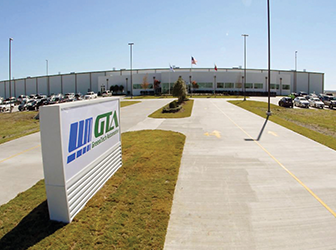Future Looks Dim for Delta Plant
By Becky Gillette
The GreenTech Automotive (GTA) facility that has received about $4.9 million in state incentives has failed to meet the requirements for job creation, according to Jeff Rent, public relations manager for the Mississippi Development Authority (MDA).
Rent says as of November, GreenTech had not met the requirements for job creation and investments. He says MDA has been working diligently to protect the state’s investment in the project, and will continue to do so.
“There are provisions within the agreement to recover the money, including equipment for collateral,” Rent says.
At one point, GTA promised to invest $2 billion in its Mississippi manufacturing facility to build a 100-percent electric vehicle called MyCar, a two-seat neighborhood electric vehicle that could be charged with a common 110V wall outlet, a 220V wall outlet or fast charging stations. The company stated in October 2015 that it had commenced production and was taking orders. GreenTech has not responded to numerous phone calls and emails from the Delta Business Journal.
The Mississippi Department of Employment Security (MDES) has also failed to be able to get in contact with officials at GreenTech. MDES spokeswoman Dianne Bell says she has tried numerous times to reach GreenTech regarding offering services to employees who were laid off in January.
“I can’t get anyone to answer the phone,” Bell says.
Lyn Arnold, president\CEO, Tunica Chamber of Commerce and Economic Development, says it is her understanding that there is still a workforce of 50 left at the manufacturing facility GTA moved into in 2013.
“They are still working on a merger with a Chinese company,” Arnold says. “We certainly hope they are successful in the merger with another company and they can then move forward with their original plans.”
The layoffs come not long after the company announced it was moving its headquarters to Sterling, Va. On Aug. 31, 2016, GTA announced it was establishing a new corporate office in Sterling, Va. to support the expansion of GTA international operations and provide corporate support to GTA’s manufacturing facility in Tunica.
“We were fortunate to find a new a space that is not only attractive and functional, but also is a better value,” says GTA Chief Financial Officer Peter Huddleston. “Our new location with its enhanced operational efficiencies will help us continue to grow and will allow us to have enough room for additional team members as our company expands. I don’t think we could have found a better location for our team.”
However, Bell says a number she was given for the headquarters in Virginia is no good, and the Delta Business Journal was unable to find a phone number for the office in Virginia. Emails to the company through its website were not returned.
It is not clear how the facility in Virginia could be cheaper than the facility in Robinsonville that was heavily subsidized by the taxpayers. However, GTA has a history in Virginia. According to a Washington Post article published in 2013, after losing the 2009 Democratic primary for governor, Terry McAuliffe set out to establish a “green” car company in Virginia “using political connections and his well-honed salesmanship skills to get the venture off the ground.
In 2010, the former Democratic National Committee chairman spent $20 million to buy EuAuto Technology, a Hong Kong-based company that built the MyCar, and he was already scouting for possible locations—ideally with government incentives—to build a plant in the United States. While Virginia officials were still scrutinizing GreenTech’s business model, the company received millions of dollars in incentives from Mississippi and began operations there. Questions about the company have dogged McAuliffe since his current gubernatorial campaign began.”
McAuliffe, who was co-chairman of the campaign to re-elect Bill Clinton in 1996, is now governor of Virginia. According to Wikipedia, McAuliffe no longer has an ownership stake in GTA. Bill Clinton was one of the speakers at the GreenTech opening in 2012.
Prior to becoming governor, McAuliffe was investigated for allegedly requesting special treatment from the Department of Homeland Security for foreign investors willing to pay $500,000 to invest in GreenTech in return for green cards to come to the U.S. No charges were ever filed in the case involving the government’s EB-5 visa program that provides a path of U.S. citizenship for wealthy foreign investors. The program has been criticized as putting U.S. citizenship up for sale.
Suzanne Clark, a spokesperson for the Virginia Department of Economic Development Partnership, says that the Partnership was not involved in the GreenTech relocation to Virginia.
For more information, visit www.gtaev.com.

